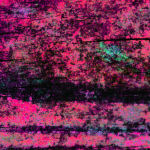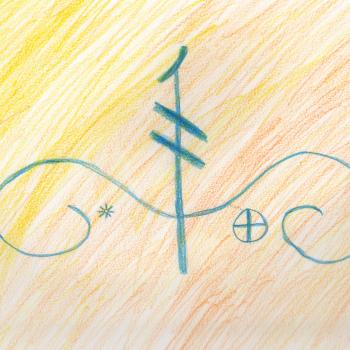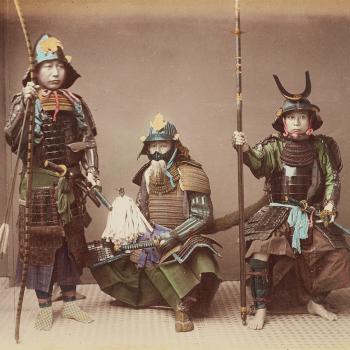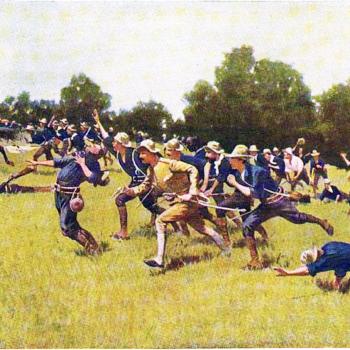I do not believe in precognition, telepathy, clairvoyance, or other psychic powers. And yet from time to time I will reach for one of my tarot decks, or do a similar reading with a “universe deck” of words made for writing exercises, or flip coins for the I Ching. And I read Rob Brezney’s “Real Astrology” column in the City Paper most every week, even though I am quite sure that the movements of Jupiter or Mars across the constellations of the night sky bears no direct relationship to my love life or my economic situation.
I don’t believe in psychic powers, but I do believe in the power — indeed, the necessity, the inevitability — of storytelling.
The brain is a story-telling machine. (The frontal lobes, at least; I’m not so sure about the medulla oblongata that keeps me breathing, but on the other hand is there a more basic plot line than the rise and fall of the chest?) Julian Jaynes famously defined consciousness as an analog “I” narratizing in a “mind-space” (see, e.g. “Consciousness and the Voices of the Mind”, Canadian Psychology, April 1986, Vol. 2); and while I have doubts about his theory of how consciousness arose, this is a decent operational definition of it. Consciousness is story-telling.
And the stories it tells are not just about the past, but about the present leading into future. Indeed, that’s the evolutionary advantage, telling stories to ourselves to predict the future. Our umpity-great-grandfather thought, in a pre-linguistic way, “Let’s tell a story about what happens if I go down that path into the forest. I think that story ends with me getting eaten by proto-hyenas. I think if I stay here with the rest of my tribe of proto-anthropoids, that story ends with me finding some tasty, tasty grubs under a log and then mating.” You can see how natural selection is at work here; poor story tellers become hyena food, good ones become ancestors.

So we are all story-tellers, automatically and by nature. And the question that good story-tellers are always asked is, “where do you get your ideas?”
I mentioned the “universe deck”. This is a set of index cards with a word written on each one; a certain number of cards with “motion words”, a certain number with “sensory words”, and so on. It’s a tool developed by Linnea Johnson and Anita Skeen (as described in Johnson’s chapter in Robin Behn and Chase Twichell’s book The ractice of Poetry) to generate seed ideas for poems. A simple way to use one would be to pick five random words from the deck and then write a ten line poem that incorporated those words. Or you can make up arbitrarily complex sets of rules. I sometimes draw words and lay them out in the pattern of the “Celtic Cross” Tarot layout, where each card/word has a relation to the others based on the order in which it’s drawn, and try to reflect that relationship in the poem.
One could write about any topic using this method, but often you will find that you end up writing about what’s going on in your life and gain insight into potential futures and choices to be made.
It’s interesting to do this exercise in a group, where everyone gets the same set of words, and see the different poems that result. For each poet the same words will strike different associations, based on their own life experiences and mental and emotional constitution.
Divination can be the same; it can give us ideas for stories about what has happened, is happening, will happen. Lay out the same cards or toss the same hexagram with two different people and you should get two different interpretations, as the material is woven into two different life stories. Indeed sometimes, just as we might integrate a word into the poem by negating it (e.g, . I draw ‘tranquility” from the deck and write about how there is no tranquility to be found), in a Tarot reading we may find that a card is sometimes best interpreted as a sort of negative space. The Lovers represents something different to a single person than to someone in a committed long-term relationship.
Now, if this process of storytelling is to be of use, we must tell the stories honestly. Beware the unreliable narrator.
Storytelling is how we digest our experience of the world, put it into context. We have to figure out what sort of character we are, and make up characterizations for those around us. We have a need to put events into a plot — it’s why we say things like “everything happens for a reason”. This is patently untrue, it results in inferior stories, but it’s an easier way out. It takes a more skill to weave events bigger than the characters into the story.
(If you’d like to make your own “Universe Deck” and give it a whirl, either as a writing tool or a divination tool, get a pack of 100 index cards and write a word on each one. Johnson’s prescription is: 16 words related to or suggesting to you each of the five senses, 80 words total; 10 words meaning motion or suggesting it to you; three abstractions; and seven miscellaneous words that are significant to you. Each of these 100 words should be specific (“grasshopper” rather than “insect”), should be significant to you in some way (it’s your Universe), and should sound good to you. She recommends no plurals and no adverbs. Go to it!)
You can keep up with “The Zen Pagan” by subscribing via RSS or e-mail.
If you do Facebook, you might choose to join a group on “Zen Paganism” I’ve set up there. And don’t forget to “like” Patheos Pagan and/or The Zen Pagan over there,
too.













